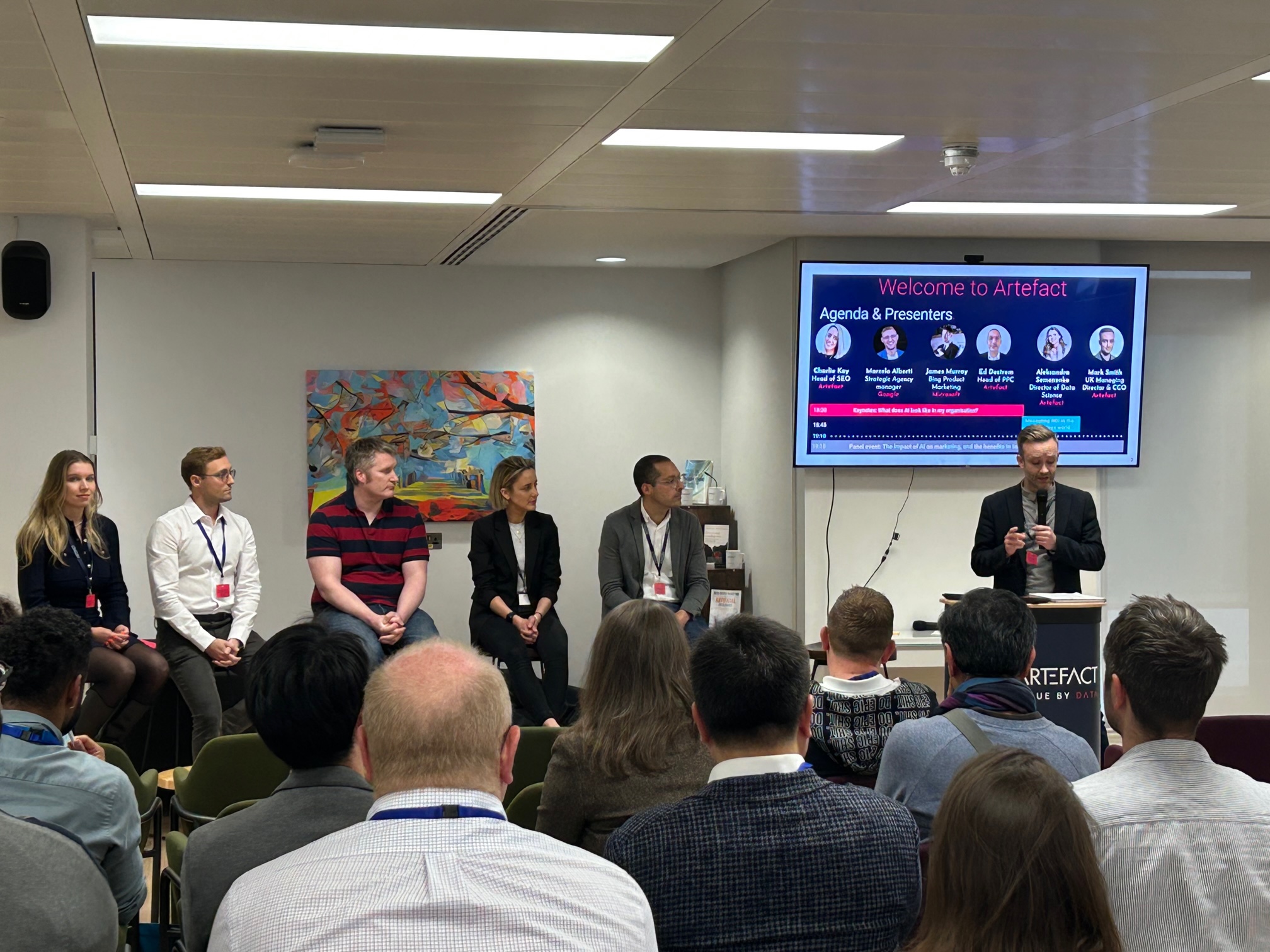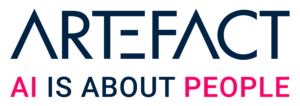On Thursday 18th May, Artefact hosted their London AI Summit, in collaboration with Google and Microsoft. Here, experts and thought leaders on both artificial intelligence, digital marketing and data science discussed the emerging trends in the industry. Artefact’s Heads of SEO and PPC presented the following speech on what AI will mean to the future of search.
Digital Marketing: The Current Landscape
Over the years, digital marketing has witnessed numerous advancements and innovations. From tag links to feature snippets and knowledge panels, search engines have continuously introduced new features and experiences, demanding marketers and advertisers to adapt and stay ahead. The latest addition to this evolving landscape is generative AI, an artificial intelligence technology capable of producing diverse content. In this article, we will explore generative AI’s role in search, its implications for SEO and PPC, and provide actionable insights for marketers to optimise their strategies.
The Rise of Generative AI
ChatGPT, introduced in November 2022, has quickly gained significant traction, amassing a staggering 1 million users within its first week and currently boasts an impressive user base of 1.8 billion (Established search engines like Google stand at approximately 18 billion users). The disparity between the relatively short existence of generative AI, merely six months, and the two-decade dominance of search giants emphasises the immense potential and impact of this emerging technology. Additionally, Bing’s introduction of generative AI, coupled with Google’s recent announcement of a search generative experience powered by Bard, further reinforces the significance of this advancement.
Exploring the Search Generative Experience
During the recent Google I/O conference, the search generative experience was unveiled, showcasing its capabilities and potential. Powered by Bard, the experience offers a visually immersive interface, reminiscent of supercharged feature snippets. With extensive content occupying a prominent space, accompanied by sources and interactive prompts, users are presented with a rich and engaging search experience. The integration of chat-based interactions further enhances the user journey, providing real-time support and information. While the product is still evolving, it promises exciting changes in the future.
Implications for Different Queries
Due to the common use cases for Generative AI, its impact on search may vary based on the type of query:
Will Generative AI Kill SEO?
Contrary to popular misconceptions, SEO is far from dead; in fact, it remains the most significant digital channel. Generative AI introduces new opportunities for SEO professionals to optimise their strategies and content. While the exact methods of optimization may evolve, the core principles remain intact. Implementing structured data becomes crucial to provide search engines with comprehensive information about website content. Moreover, embracing platform diversity is essential as organic search extends beyond traditional search engines to platforms like TikTok, YouTube, and Pinterest. Delivering high-quality, trustworthy content across various formats, such as video, podcasts, and images, ensures optimum visibility and engagement.
The Future of Generative AI
Generative AI represents the latest milestone in the ever-evolving field of search, demanding marketers and advertisers to adapt once again. The introduction of the search generative experience powered by Bard demonstrates the potential for transformative search interactions. While the implications for different query types and user segments are still unfolding, SEO remains a critical digital channel that can leverage generative AI to unlock new opportunities. By adhering to best practices such as structured data implementation, platform diversity, and high-quality content creation, marketers can navigate this new landscape and maximise their search visibility and performance. As the era of generative AI unfolds

 BLOG
BLOG





